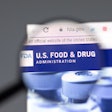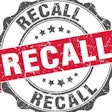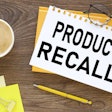In addition to new federal laws such as the Food and Drug Administration Amendments Act of 2007, a number of state legislative bodies have reacted to last year's petfood recalls. They have introduced several new proposals, primarily concerned with recovery of damages by persons whose pets are injured by adulterated petfoods. A few of the proposals add new responsibilities for petfood companies in terms of manufacturing or labeling requirements.
Legal damages for pet loss
Historically, the courts have treated pets similarly to farm animals: as legal property. Hence, recovery of damages from loss or injury to an animal has mostly been limited to the animal's market value, purchase price or replacement cost, and, in some cases, other measurable costs, such as veterinary care, training and breeding costs or loss of breeding, performance or other income. This is usually straightforward in the case of livestock, where economic losses can be more easily calculated.
Loss of a dog or cat, however, generally has relatively little direct economic effect. Even a valuable show dog doesn't come close in monetary value to a dairy bull with good genes or a prize-winning Thoroughbred racehorse. As a result, lawsuits related to loss of a pet usually have not been associated with sizable awards.
However, the legal paradigm appears to be shifting. As our society increasingly recognizes pets as part of the family and more than mere property, more lawsuits related to pet loss have sought non-economic damages (infliction of emotional distress, loss of companionship) and/or punitive damages (to punish the wrongdoer as well as deter others). As one would surmise, these types of damages generally exceed by manifold typical economic damages for pet loss or injury.
Non-economic/punitive damages
Lawsuits seeking awards beyond economic damages have been facilitated in recent years by a number of states that have enacted or proposed laws allowing for non-economic or punitive damages stemming from loss of or injury to pets. Most are directed toward intentional or negligent acts of individuals or businesses such as veterinary offices. Depending on the statutory language, however, at least some of these laws could also apply to manufacturers or distributors of petfood. The authorized limit of the non-economic/punitive award varies with each state, ranging from US$1,000 to as much as US$500,000.
In apparent response to the 2007 recalls, some of the recently proposed state laws are expressly directed toward damages caused by consumption of petfood. For example, New Jersey Assembly Bill 1965 allows for civil damages when a pet becomes ill or dies from adulterated food. In addition to economic damages, including veterinary care and burial fees, the New Jersey bill authorizes recovery for loss of companionship up to US$15,000.
Washington State Senate Bill 6258 doesn't expressly allow for non-economic damages but does authorize treble damages for unspecified losses stemming from the knowing manufacture or sale of adulterated petfood. This would be considered a deceptive act and violation of Washington's consumer protection act, and the treble damages a form of punitive award.
Other proposed state laws
In addition to the bill regarding damage awards, New Jersey has proposed a bill entitled the Pet Food Safety Act (Assembly Bill 1915). This would require manufacturers to certify to the state that petfoods do not contain "harmful byproducts or chemicals" prior to distribution in that state. Other quality standards may be put in place as well. Besides possible state action, the law would allow any aggrieved person to bring a civil action against a company that violated these provisions.
Hawaii House Bill 2529, which affects human foods as well as petfoods, authorizes the state to require action by companies that manufacture, import, distribute or sell a product that may pose a significant health risk. This could include mandatory recall of affected product. Penalties for violation of these provisions could be as high as US$10,000 per day per act.
California to require inspections?
California Senate Bill 1773 requires inspection of an in-state petfood manufacturing facility to ensure proper equipment and sanitary operation prior to registration. With an out-of-state manufacturer, the registration is contingent on certification by a federal, state or local health agency that the petfood conforms to California requirements.
The bill would also require the label to bear the brand owner's telephone number and the petfood's country of origin (presumably even for domestically produced products). While some petfood labels already bear this information, many others would have to be revised for the products to be distributed in California.
It must be remembered that as of this writing, these bills are not currently law but rather in various stages of deliberation within the respective state legislature. They may be subject to change or even dropped from consideration in the future. However, it behooves you to keep apprised of these matters as they develop.















